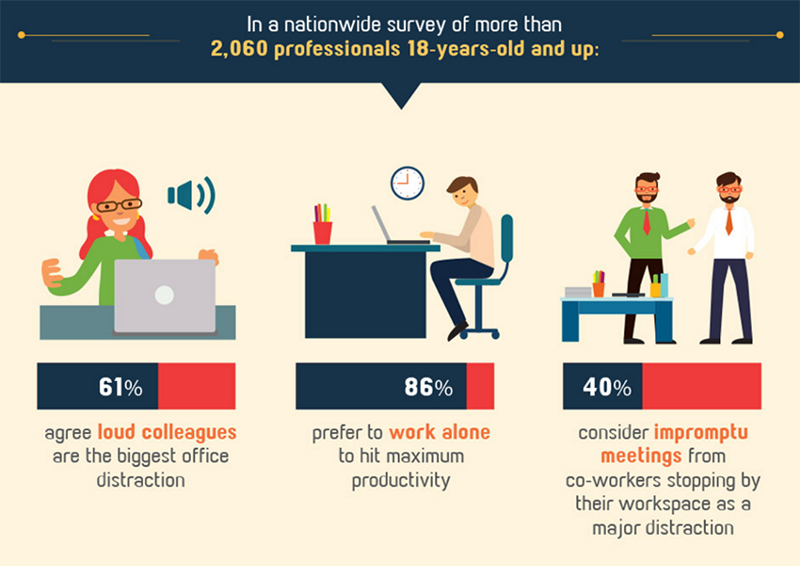
Seems like everyone wants to start a business these days.
Part of the reason is because many of us feel like our dream jobs don’t actually exist.
When we first looking for new jobs, everything seems really exciting — every job description that we feel “qualified” for seems like it could be a great opportunity. And if we manage to land the job, we feel super energized for the first few days or weeks.
We try to make a great impression, and “overperform” as much as possible.
But eventually, things begin to change. We start to get into the old “9 to 5” cycle again. We get caught up in the meetings and the day to day minutiae. Things start to get boring and dry after a while.
The jobs we land seem awesome on paper, but eventually get old.
Most people say things like “it is the way it is”, and put up with the grind. Others begin to believe that their dream job doesn’t exist, or that the only way to be happy is by starting their own business and becoming “independent.”
But in most cases, none of these things are true.
Most of us never really explore why we don’t like working in “9 to 5” jobs. We never stop to think about the core reasons why we don’t like the companies we work for.
The real reasons some of us don’t like what we do usually have to do with our working conditions. Not the actual work itself.
Even if you love what you do, you’ll still think of work as a “grind” if you’ve got a constant barrage of useless meetings every day. You’ll still feel unsatisfied if you don’t get the recognition you deserve or have enough flexibility. You’ll still dread going to work everyday if you don’t like the people you work with.
The truth that most “experts”, authors, and coaches don’t want to tell you is that you can remove these problems without trying to start your own business. There is another solution.
Imagine being able to go to the gym at 11am if you feel like it. Imagine working with top performers who “get” you. Imagine being able to cut out all the “fluff” activities in your day, so that you’re so efficient with your time that you get a full day’s work done within several hours.
By landing a remote job (or negotiating a remote work agreement with your current company), you can still experience the flexibility and freedom that you’d get if you were running your own business. And you’d still have the security of a paycheck coming in every month.
It’s not as hard as you might think.
The Benefits of Working Remotely
Companies are slowly realizing the benefits of building remote teams.
It’s a massive win-win for both employees and employers. According to Forbes, here are some of the perks remote workers say they get to experience:
- Less stressful work environment (38%)
- Quieter atmosphere, so you can do work without having to put your headphones in to drown out your loud coworkers(43%)
- Cutting out the long commute to and from work every day (44%)
- Increased productivity (45%)
- Avoiding traffic (47%)
- Saving gas (55%)
- More work / life balance (60%)
If companies allow for remote work arrangements, they can get a wider pool of talent, save money on in-office costs for the employee, and also sometimes save money on their salary (since remote workers are usually willing to take a pay cut to be able to work from anywhere).
Working at an office has its benefits too. But the fact is that comes with a lot of distractions. For example:

We’ve all had experiences working in noisy offices where it seems like nothing can ever get done. Many of us have had experiences with well-intentioned coworkers barging in and disrupting our flow when we’re “in the zone.”
That’s why remote workers are actually more productive than people who work in offices.
And depending on what you do, you might even get to work and travel at the same time.
A few months ago, I visited Ho Chi Minh City in Vietnam while working at the same time. Here’s a pic from my Airbnb:

If you’re the type of person who loves being around people all the time when you’re working, or enjoys being in an office then maybe remote work isn’t for you.
But for a lot of people, working remotely is the best hack to get flexibility and the freedom to “own” their schedule without losing the security of a paycheck.
Here’s how you can convince your company to let you work remotely, even if your boss says “we don’t do that here.”
Negotiating a Remote Work Agreement
You might think that remote work is only possible for certain fields, or that you need to be present at work for everything to work out.
But this is rarely true. By following a set process, you can successfully negotiate a remote work agreement, and skyrocket your quality of life.
I’ve written previously about using pre-interview projects to land job offers — it’s basically the idea that you should “do the job before you get the job”, and prove to your employer that you’re a great fit.
Same thing applies to negotiating remote work agreements. You have to get as close as you can to proving to your boss that working from home is a win-win.
Here are a few things to keep in mind when crafting your “work from home” proposal:
Pick the right time to ask
The best time to negotiate for anything at work is when your boss is really happy with your work. Ideally, after a salary or performance review that went well.
Include the following things in your proposal:
The ROI of Remote Work.
No one cares about you. No one cares that you want to avoid traffic every morning or have more flexibility in your schedule.
At the end of the day, you have to tie the benefits back to the company.
You could find data on things like 1) the average productivity increase of remote workers, 2) the average increase in overall happiness and employee retention rates, etc.
How you’ll handle your current tasks.
You’ll want to make sure that you have outlined processes for how you’d handle your current tasks remotely — at least for a few days. How will you communicate with your colleagues? How will you stay disciplined to get your work done?
Risk reversal.
There are obviously going to be a lot of objections coming your way. That doesn’t mean you’ll get rejected, it just means you have to plan for them.
The best way to reduce perceived risk of you working remotely is by having a short “test” period where you and your company both try it out. For example, you might say something like “I think that setting up a remote work policy for the future could be a huge win for the company, but I understand that there are a lot of unknowns and risks in doing that. How about we try this out for 3–5 days? If we don’t feel like this will work going forward, of course I’m happy to work in-office.”
Give them persmission to say ‘no.’
There’s this interesting thing in psychology called the “But You Are Free” technique.
It says that when salespeople remind their audience that they have the option to say no if they want to, they double their chances of getting a “yes.”
So at the end of the pitch, say something like “if there’s absolutely no way that this can be done, that’s totally cool — I understand. But I think the data shows that it could be a great win-win, and it’s worth testing.”
That’s how you could “hack” your way to your dream lifestyle.

Leave a Reply